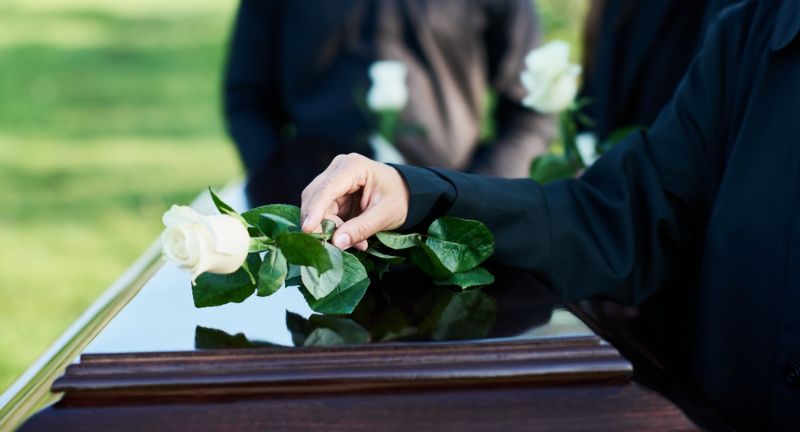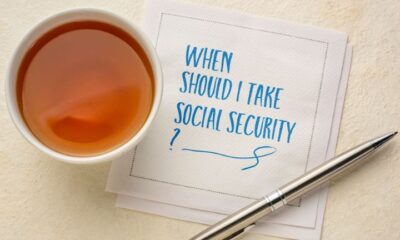Society has evolved significantly over the past century, and with it, many outdated social norms have been left behind. While some of these customs once dictated proper behavior, they now feel strange, outdated, or even harmful. Revisiting these past norms highlights how much progress we’ve made toward fairness and equality. Here are 22 old social norms that seem downright ridiculous today.
Women Needing Chaperones on Dates

Shutterstock
In the early 1900s, it was considered improper for a woman to go on a date without a chaperone. This practice was based on the belief that women couldn’t be trusted alone with men. Today, this outdated notion has been replaced by individual freedom and trust. Modern dating respects personal autonomy far more than in the past.
Men Expected to Pay for Every Date

Shutterstock
It was once a strict social rule that men were expected to cover the entire cost of a date. While generosity is still appreciated, the idea that men must always pay is outdated. Modern dating often embraces splitting costs or alternating who pays. Equality in relationships includes financial balance and mutual effort.
Women Being Expected to Quit Work After Marriage

Shutterstock
In the past, women were often expected to leave their careers once they married. This norm assumed a woman’s primary role was in the home. Today, women actively pursue careers and balance professional and personal lives. The shift has helped promote gender equality in the workforce.
Strict Dress Codes for Public Spaces

Shutterstock
In the early 20th century, it was common for men and women to dress formally just to visit public spaces. Suits, gloves, and hats were standard even for simple errands. Modern fashion emphasizes comfort and personal expression. The idea that formalwear is mandatory for public outings feels excessive today.
Children Should Be Seen, Not Heard

Shutterstock
The old saying “children should be seen, not heard” discouraged kids from participating in conversations. This belief minimized the importance of a child’s voice and ideas. Today, children are encouraged to express themselves and participate in family discussions. Valuing children’s opinions has become a key part of healthy parenting.
Women Required to Wear Skirts or Dresses in Public

Shutterstock
For much of the 20th century, it was considered improper for women to wear pants in public. This social norm was rooted in gender stereotypes about femininity. Today, fashion freedom allows women to wear whatever feels comfortable and empowering. The outdated rule limiting attire choices has largely disappeared.
Married Couples Having Separate Beds

Shutterstock
In the mid-20th century, separate beds for married couples were a common practice. It was seen as a sign of propriety and modesty. Modern views have shifted, recognizing intimacy as an important part of relationships. Sharing a bed is now the standard for most married couples.
Men Always Proposing Marriage

Shutterstock
Traditionally, marriage proposals were expected to come from men only. This outdated norm ignored women’s agency in relationships. Today, many couples embrace mutual proposals and shared decision-making. The focus has shifted toward equality in all stages of relationships.
Women Not Being Allowed to Own Property Alone

Shutterstock
Historically, women often needed a husband or male guardian to own property. This limited financial independence and personal freedom. Modern laws ensure women have equal property rights. The shift has been a major step toward gender equality.
Only Men Being Allowed to Vote

Shutterstock
For much of history, voting was restricted to men, excluding women from having a voice in democracy. This outdated norm reflected systemic inequality and oppression. Today, universal suffrage ensures both men and women can participate in shaping their governments. Voting rights remain a core element of modern equality.
Arranged Marriages as the Norm

Shutterstock
Arranged marriages were once the standard in many cultures, often decided by families rather than the couple. Personal choice was limited, and love was secondary. Modern relationships prioritize mutual consent and emotional connection. While some cultures still honor arranged marriages, personal choice has become far more common.
Strict Gender Roles in Parenting

Shutterstock
It was once expected that mothers handled childcare while fathers focused on earning income. This rigid division limited both parents’ roles. Today, parenting is increasingly seen as a shared responsibility. Breaking away from strict gender roles promotes healthier family dynamics and greater balance.
Women Being Required to Wear Hats in Public

Shutterstock
During the early 20th century, women were often expected to wear hats in public to appear “proper.” This social rule was rooted in outdated ideas of modesty. Modern fashion has moved toward personal choice rather than strict dress codes. Today, hats are worn for style rather than societal expectations.
Divorce Being a Taboo Topic

Shutterstock
For much of the past century, divorce was heavily stigmatized. People often stayed in unhappy marriages due to fear of social judgment. Today, divorce is more widely accepted as a personal choice for well-being. The shift has helped normalize the importance of emotional health in relationships.
Curfews for Adult Women

Shutterstock
Historically, women were often expected to adhere to strict curfews, limiting their independence. This practice was rooted in controlling female behavior. Modern society recognizes adults’ freedom of movement regardless of gender. Personal safety and freedom are now more balanced in modern norms.
Men Being the Sole Breadwinners

Shutterstock
The old belief that men should be the sole financial providers placed undue pressure on both genders. Women were often discouraged from pursuing careers. Today, households often feature dual incomes, with both partners contributing equally. This shift has led to greater financial stability and gender equality.
Banning Women from Sports

Shutterstock
For decades, women were discouraged or outright banned from participating in many sports. This exclusion was based on outdated views of physical capability. Modern athletic culture celebrates women in all forms of sports, from the Olympics to professional leagues. Breaking this norm has encouraged equality in athletics.
Elaborate Mourning Attire Requirements

Shutterstock
In the Victorian era, widows were expected to wear black for months or even years after a spouse’s death. This public display of mourning was strictly enforced. Today, grieving is seen as a personal experience rather than a social performance. Modern norms prioritize emotional healing over appearance.
Women Needing a Male Escort for Travel

Shutterstock
There was a time when women were discouraged from traveling alone, needing a male escort for “protection.” This norm limited female independence and personal growth. Today, solo female travel is widely accepted and celebrated. Women can explore the world safely and confidently without outdated restrictions.
Prohibiting Mixed-Gender Friendships

Shutterstock
Friendships between men and women were once viewed as inappropriate. The assumption was that mixed-gender relationships could only be romantic. Modern society recognizes that friendships can be purely platonic. This shift has encouraged healthier and more diverse social connections.
Forcing Left-Handed Children to Write with Their Right Hand

Shutterstock
Historically, left-handed children were forced to write with their right hand, as left-handedness was seen as “incorrect.” This practice caused unnecessary stress and discomfort for many children. Today, left-handedness is fully accepted as a natural variation. Encouraging individuality in learning styles has become the norm.
Excessive Formality in Everyday Interactions

Shutterstock
Formality in everyday conversations, such as addressing people by titles constantly, was once mandatory. While respect remains important, modern communication is often more relaxed and approachable. Today, using first names and casual language is widely accepted. This shift makes social interactions feel more genuine and less rigid.
Conclusion

Shutterstock
Society has come a long way in shedding outdated social norms. Practices once considered essential now seem unnecessary, restrictive, or even harmful. As cultural values evolve, so does our understanding of fairness and personal freedom. Embracing progress helps create a more inclusive and compassionate world.























































